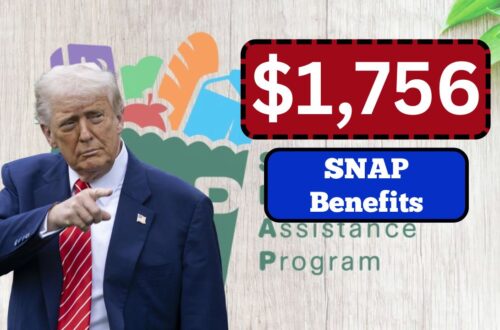Starting November 1, 2025, the Supplemental Nutrition Assistance Program (SNAP) will enforce stricter rules.
Able-bodied adults without dependents (ABAWDs) will be required to work, volunteer, or participate in training/education for at least 80 hours per month in order to remain eligible for benefits beyond three months.
Failure to meet or verify this requirement can lead to the loss of SNAP benefits after three months within a three-year window.
This policy shift is one of the most sweeping changes to the SNAP program in years, with implications for millions of Americans.
Who Is Affected by the New Rule under SNAP 2025
This change primarily affects ABAWDs — adults between 18 and 64 who do not live with a child under 14 (the dependent threshold changes under the SNAP 2025).
Many individuals who were previously exempt—such as veterans, former foster youth, and those in certain job training programs—will lose those exemptions and must comply unless they qualify under other categories.
States previously granted waivers to ease enforcement—especially in counties with high unemployment—will see most of those waivers expire. That means vulnerable populations in rural or economically distressed regions will be especially hard hit.
The 80-Hour Work or Activity Requirement under SNAP 2025
To meet the requirement, beneficiaries must engage in:
- Paid employment (for 80 hours/month)
- Volunteering or community service
- Participation in workfare, job training, or educational initiatives
- A mix of the above, as long as total hours reach 80
It is important to emphasize: “work” is defined broadly. Unpaid or volunteer efforts can count, as can approved training. Recipients must document and verify these hours monthly.
If someone fails to meet or verify 80 hours for three consecutive months, they may lose SNAP benefits unless they qualify for an exemption.
Exemptions & “Good Cause” Provisions for SNAP 2025
Despite the stricter rule, certain individuals may be exempt or eligible for “good cause” relief. These include:
- People physically or mentally unfit for work
- Pregnant women
- Those caring for a disabled family member
- Those with transportation or health barriers
- In some states, homeless or formerly foster youth (depending on local implementation)
However, some of the exemptions that previously applied—such as veteran status—are being removed or narrowed. States will require documentation to grant any exemption, and may have tight oversight of these claims.
Why the Policy Shift & how it is relates to SNAP 2025
The federal government argues that stricter rules under SNAP 2025 will promote self-sufficiency, encourage labor force participation, and reduce long-term dependence on food assistance.
Proponents claim able-bodied adults should be accountable and should contribute via work or training.
At the same time, critics warn that many recipients already juggle unstable, part-time, or irregular jobs. They fear the rule will push working poor individuals out of nutrition support, especially where job access is limited.
Potential Impact on Recipients of SNAP 2025
- Millions at risk: Analysts estimate millions of SNAP beneficiaries could lose benefits by early 2026 if they don’t comply.
- Disproportionate impact in rural / high-unemployment areas: Where jobs or transit options are scarce, meeting 80 hours may be unfeasible.
- Stress on families: Households might beset by food insecurity, especially those already balancing multiple low-wage jobs and caregiving.
- Administrative errors: Recipients may lose benefits because of missed paperwork, delays, or verification failures — not inability to work.
The 2025 SNAP changes mark a dramatic pivot: for millions of Americans, proving 80 hours of work or approved activity per month will become a matter of staying fed.
While the government frames the shift as encouraging productivity and reducing welfare dependency, the real-world stakes are high.
In communities where jobs are scarce or unpredictable, enforcing this rule could thrust many into deeper instability and food insecurity.
The balance between accountability and compassion will be tested. As this policy takes effect, its success will hinge on states’ capacity to implement fairly, provide exemptions wisely, and support recipients rather than punish them.
FAQs
When does the SNAP 2025 go into effect?
The new work requirement begins November 1, 2025, though some states may apply it earlier during benefit recertification cycles.
Who must meet the 80-hour rule under SNAP 2025?
Able-bodied adults ages 18 to 64 without dependent children (under 14), many of whom were previously exempt, must now comply unless qualifying for exempt status.
What happens if someone fails to meet or verify 80 hours?
They could lose SNAP benefits after three months unless they can document a valid exemption or “good cause” reason, such as illness or caregiving obligations.








